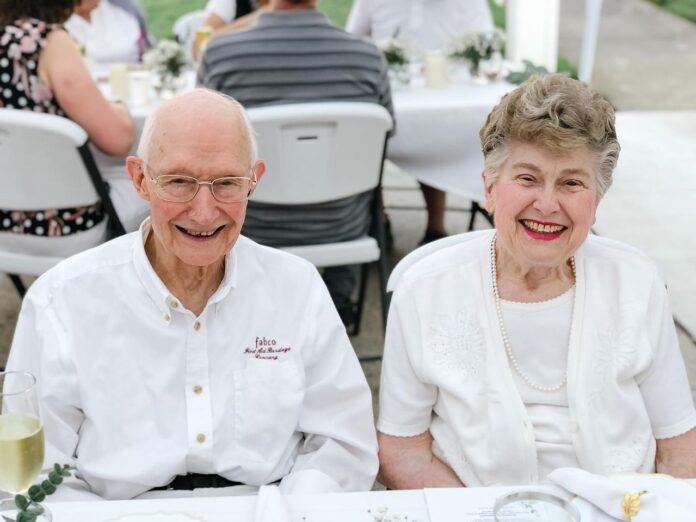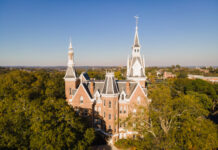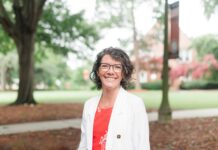Thomas “Tom” McDonald was an entrepreneur who believed in the power of education, perseverance and community. He and Ramona, his wife of 68 years, were generous Mercer University supporters, and their financial gifts have nurtured the minds of students, faculty and community members in Georgia and abroad.
Ramona passed away in 2022 at age 92, and Tom died on July 17 at age 91. Tom will be remembered during a memorial service at 10 a.m. Nov. 1 in Newton Chapel on Mercer’s Macon campus.
“Their interest and enthusiasm in making a difference in others’ lives was contagious,” said John Patterson, senior vice president for university advancement at Mercer. “Whether that was by instilling in college students an appreciation for America’s founding principles or allowing our College of Education students and faculty to make a difference through lives of teaching and service, the McDonalds wanted to invest in others to make not only America a better place but also the world through their global impact.”
‘A love story for the ages’
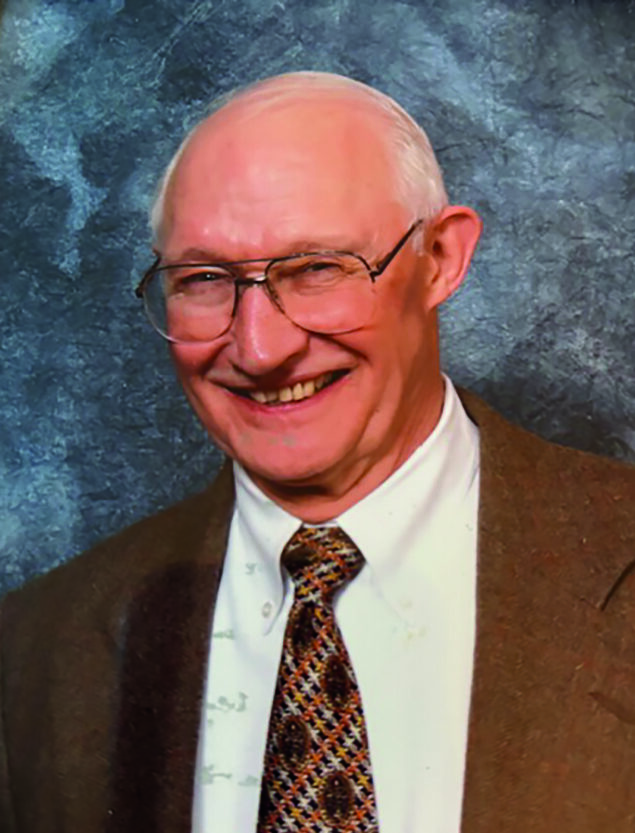
Born in 1934, Tom was raised on a farm just outside of Lithonia in rural Georgia. He developed an entrepreneurial spirit at a young age, taking on a variety of jobs and ventures as he grew up, and he translated that passion into a successful career as a businessman.
He started his college education at Mercer at age 16 before transferring to Baylor University and finally University of North Carolina at Chapel Hill, from which he graduated at age 19. Tom married Ramona, a Tift College graduate who majored in history and minored in voice, in 1954, and the couple had three children. They lived in 10 states throughout their marriage, their last hometown being Vancouver, Washington.
“They were sweethearts from the moment they met,” said Dr. N. Jean Walker, Mercer program director for Tier I and II leadership certification programs and assistant professor of clinical practice in educational leadership. “Tom shared with many of us their love story, and it’s a love story for the ages. Their eyes sparkled when they spoke about each other and their relationship.”
After completing his U.S. Army service, Tom earned a Master of Business Administration at Harvard Business School. That degree opened the door to a career in which he created, rebuilt and nurtured scores of businesses. Companies he worked with included Cryovac, Booz Allen, Olin, International Paper and Avenir. He went above and beyond his job requirements, tackling each project with determination, innovative thinking, kindness and compassion.
As Tom and Ramona were exploring ways to give back to the community, they chose to support initiatives at Mercer related to education and the nation’s founding principles. In 2013, they gave a $2 million endowment gift that allowed for the expansion of Mercer’s Center for America’s Founding Principles, which now bears their name, and the creation of the Thomas C. and Ramona E. McDonald Center for the Advancement of Global Education. They also established the Ramona Ellington McDonald Choral Fund in the School of Music.
McDonald Center for America’s Founding Principles
Dr. Charlotte Thomas, professor of philosophy and co-director of the McDonald Center for America’s Founding Principles, said that she, Dr. Will Jordan and the McDonalds connected over their shared interests and goals. The Center was a perfect fit for what the McDonalds hoped to accomplish with their donation.
“We have been greatly blessed by the opportunities our country, the United States of America, provided for people who are industrious, (have) an entrepreneurial spirit, and a strong ethical foundation,” the McDonalds said in a joint statement in 2013. “We hope this Center for America’s Founding Principles will increase the awareness of many more young people in how America has become the great nation we are and that maintaining freedom and our system of government requires constant diligence.”
The Center for America’s Founding Principles, established at Mercer five years prior to the McDonald’s donation, was previously funded through grants that had to be re-secured each year, said Dr. Jordan, political science professor and co-director of the Center.
“It was always pretty tenuous because we didn’t know if or when any of that (funding) would dry up,” he said. “The fact that they were able to give us an endowment gift that was able to cover all of our in-year programming was really a godsend. … They gave us a future and gave us resources to make Mercer and Georgia a better place.”
The Center now brings around 17 nationally recognized scholars to campus each year, including for the A.V. Elliott Conference on Great Books and Ideas. At the McDonalds’ request, a general education course called “America’s Founding Principles” was created and is offered every semester. Guest lecturers teach the course and present community lectures.
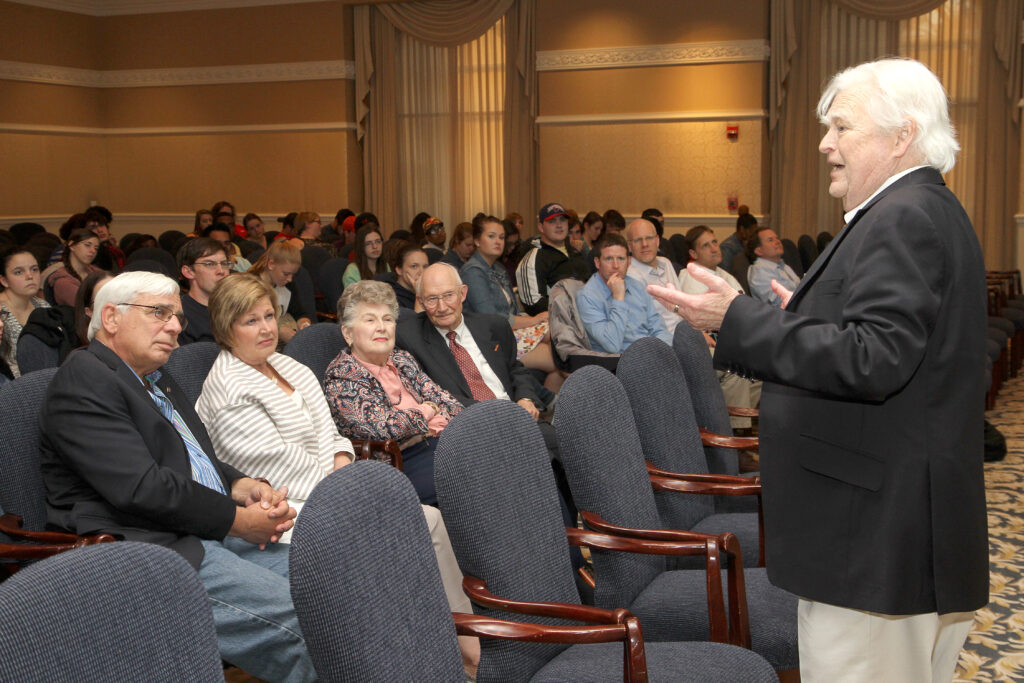
In addition, the endowment supports an extracurricular reading group program. About a dozen undergraduate students participate each semester, and some do it for multiple semesters. They meet with several faculty members and, as a group, read and discuss classic literature and core texts — also known as “great books.” Dr. Jordan said it’s a community-building program that is a transformative experience for many students.
“It is really powerful for education to spill over the conventional boundaries of the classroom,” Dr. Thomas said. “We’re acculturated, socialized from the time we start kindergarten for classes to be one kind of thing, and for what we do outside the classroom to be a different kind of thing. What the McDonald Center programming allows us to do is to begin to blur those boundaries.”
Students see that they can have important conversations with different kinds of people, in settings where authority is de-centralized and discussion and disagreement are encouraged.
“(The McDonalds) throughout their life maintained this passion for education, reading and for the idea that in order to be a responsible American citizen you needed to be literate and informed. Their legacy is to encourage that in Mercer students and faculty from now on,” Dr. Thomas said.
In 2024, the Center revived a great books weeklong summer program for high school teachers, and the goal is to offer it every year going forward, Dr. Jordan said.
“Both Tom and Ramona were very keen on that (program) because teacher education was a really huge part of what their interest was in Mercer and the way they want to make the country a better place,” Dr. Jordan said. “They really would like to see us expand to being a regular aid and resource for high school teachers in the state and country who are interested in reading great books with their students.”
McDonald Center for the Advancement of Global Education
Tom had business ventures in the Dominican Republic, and he struggled with the context of the living conditions and the lack of educational opportunities he saw there, said Dr. Cynthia Anderson, a retired assistant professor in the College of Education. He wanted to help the people there grow, and he thought the best way to foster that was through sustainable education initiatives.
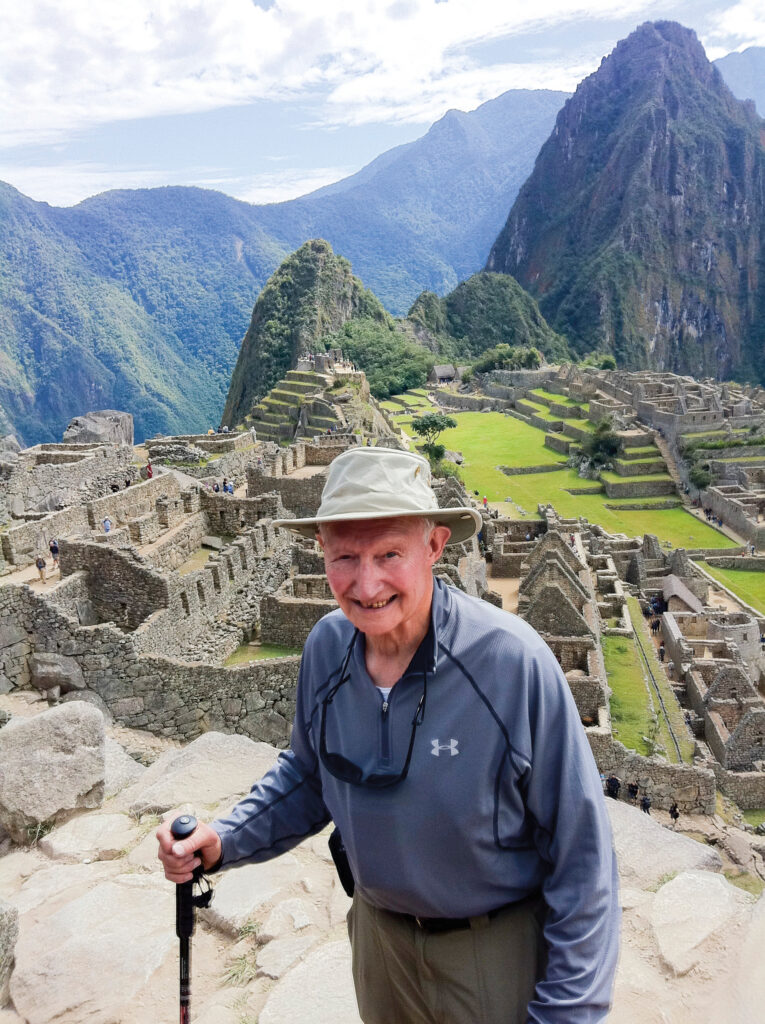
“Tom had a clear commitment to helping students and their families, especially in the Dominican Republic,” Dr. Anderson said. “He wanted to be supportive by any means necessary. He was a man of his word and was truly committed to the work he had outlined. He was a businessman that had such deep thoughts. He was a thinker with a heart.”
The McDonalds endowed the Center for the Advancement of Global Education with the goal of improving education in the Caribbean country. Since 2013, Mercer’s College of Education has provided professional development for educators in the Dominican Republic, first in Region 5 and now also in Region 12.
The Mercer team, led by Dr. Walker and Dr. Anderson, developed evidence-based learning modules on instructional planning, student engagement, assessment and instructional leadership that are currently being implemented in 16 Dominican schools, Dr. Walker said.
Mercer faculty travel to the Dominican Republic at least three times a year to work with local educators, including to lead a teaching and learning conference every August. Dr. Walker and Dr. Anderson also meet with their Dominican contacts virtually each month, and Dominican delegates have visited Mercer on multiple occasions.
Last year, Mercer partnered with the country’s Ministry of Education to widen the scope of its work across the country and close a disconnect they saw between leadership and local teachers who were using the Mercer methods in their classrooms, Dr. Anderson said. Now, principals and leaders who have implemented the modules in their schools can begin to train educators that they support in other schools and areas, Dr. Walker said. This expansion aligns with Tom’s vision for sustainable, long-term change.
“Think about it,” Tom said in a speech to Dominicans attending an education training conference two months before his death. “If … the program can be continually expanded to the entire nation during the next 12 years, you will directly or indirectly have positively improved the learning of over 5 million children.”
Recent walk-through instructional assessments and quantitative measures have been affirming and encouraging, showing evidence that Dominican partner schools have “bought into” the Mercer modules and are beginning to use student achievement data to make instructional and professional development decisions, Dr. Walker said.
“Tom McDonald’s vision is inspiring; it’s contagious; it’s a work of the heart. I know Tom and his family would see their time and money well spent. We see his investment and his vision taking hold and beginning to yield benefits,” Dr. Walker said. “One of our goals is for those schools that we’ve been working with to become Mercer module model schools … and then to see the ministry be able to use the trainer module to expand the strategies throughout the country.”
Mercer is laying the foundation so that these practices can become embedded in the Dominican education system, Dr. Anderson said.
“Our hope is sustainability,” she said. “The hope is that in a couple years we’ll see success and student achievement, but also we’ll have a quality number of folks in the country that can continue the work. We’ve given them a strong root system so that those wings can get stronger and they will eventually take off.”

